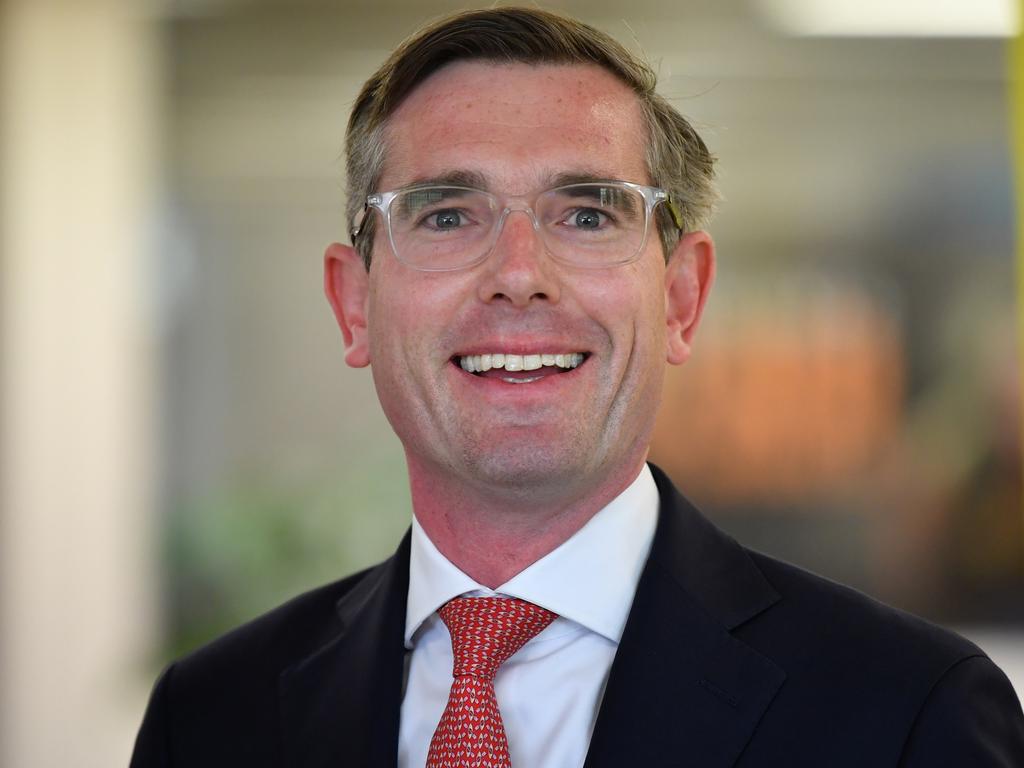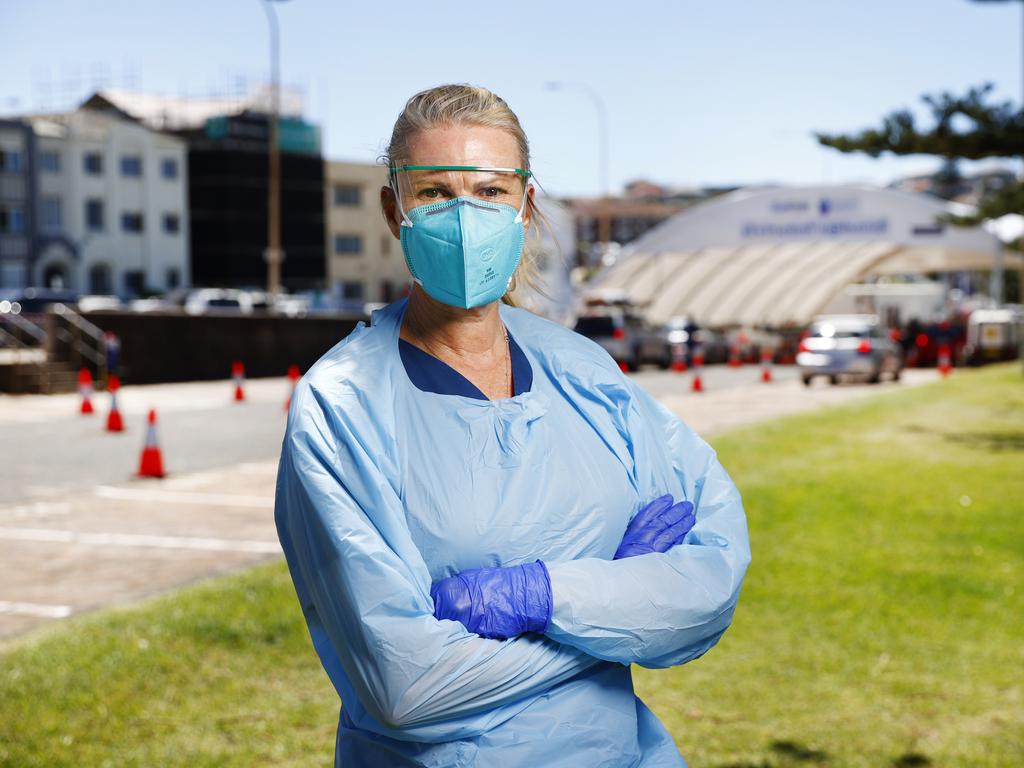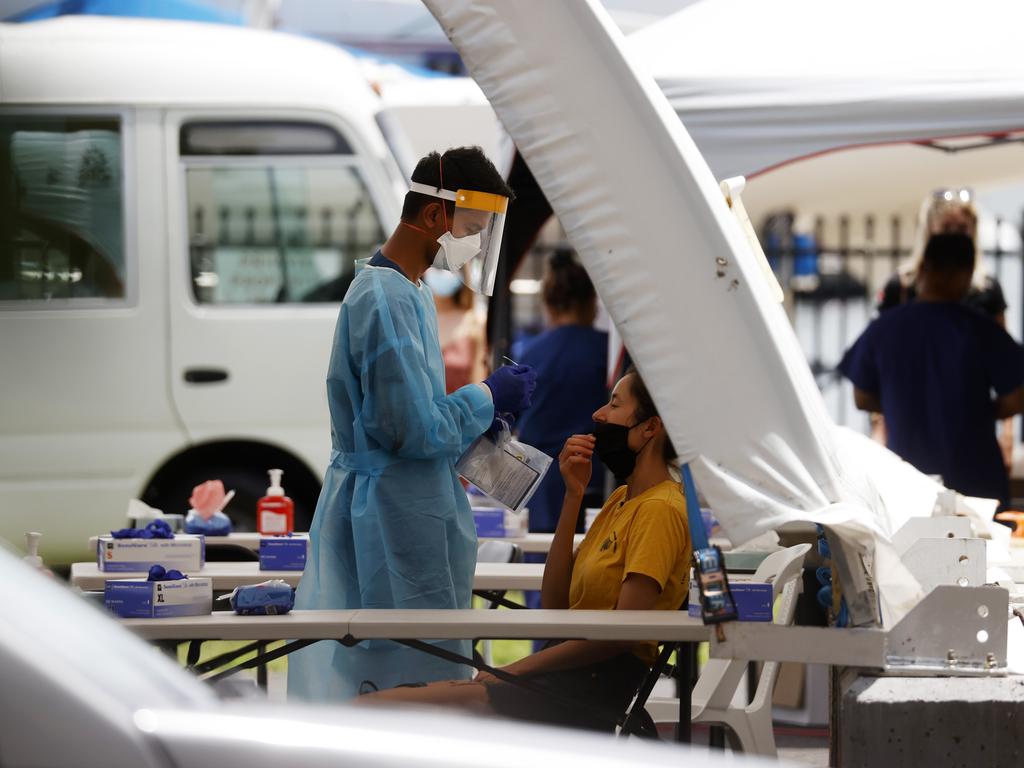Covid isolation rule change debate suggested
It has been suggested that Australia should consider the idea of scrapping a major rule for people infected with Covid.
EXCLUSIVE
Australia should consider scrapping the seven-day isolation period for people infected with Covid and reduce the time spent locked up in doors to five days or less.
NSW Premier Dominic Perrottet has called for debate on the option at Monday’s national cabinet based on the health advice.
In an exclusive interview with news.com.au, Mr Perrottet said this wasn‘t a “let it rip” solution but a sensible idea if backed by medical experts - given the high vaccination rates in the community.
“Ultimately, we have to get to a point where if you are sick you stay at home and if you are not sick you can go to work,” he said.
“And I think we need to look at the periods of time in which we are forcibly requiring people to not be able to work and provide for their families.”
But he warned if we were forcibly requiring people to stay at home the Albanese Government needs to reinstate financial support for casuals.
The matter will be discussed at the national cabinet on Monday.
“My view is this: if we’re going to have the state take away people’s liberty and they can’t work well then the state needs to compensate,’’ Mr Perrottet said.
Stream the latest news on COVID-19 with Flash. 25+ news channels in 1 place. New to Flash? Try 1 month free. Offer ends 31 October, 2022 >


“The real conversation to be had is this: what is the future of public health orders?.”
In January, British Prime Minister Boris Johnson scrapped all coronavirus self-isolation rules as part of a “living with Covid” strategy.
The new rules meant that people who tested positive for the virus are no longer required to self-isolate for a minimum of five days.
“Covid will not suddenly disappear,” Boris Johnson told Parliament at the time.
“So those who would wait for a total end to this war before lifting the remaining regulations would be restricting the liberties of the British people for a long time to come.”
But while Britain has no self-isolation rules in place, six months later Australians still require people to isolate for seven days after a positive test.
Former prime minister Scott Morrison said earlier this year that isolation rules were constantly under review.
“We’re going to take medical advice on that, and I know the chief medical officer has many sleepless nights over this one because we ask him about it regularly,” he said.
“And so if he‘s in a position to tell me that we can make a change like that, then of course that would be something that we would proceed with.”


At the time, Mr Morrison said the current advice was that 30 per cent of cases remain infectious after five days, and the risk of changing the isolation period was too great.
Mr Perrottet said too often the consequences of public health orders had significant “downstream” consequences.
One example was the recent decision to change the rules that previously said you don‘t need to isolate if exposed to Covid for three months after you are infected.
Now that’s been slashed to a month, Mr Perrottet said it was going to lead to more people being forced to isolate themselves.
“Making a decision in relation to reducing the reinfection rate from 12 weeks to four weeks, which leads to a lot more people ending up in isolation,” he said.
“There’s got to be a co-ordinated response from the whole of the government.”
Asked if the isolation period should be reduced from seven days Mr Perrottet said he would like to hear advice from experts.
“I‘d like to listen, I’d like to listen to the health officials in relation to it,’’ he said.




